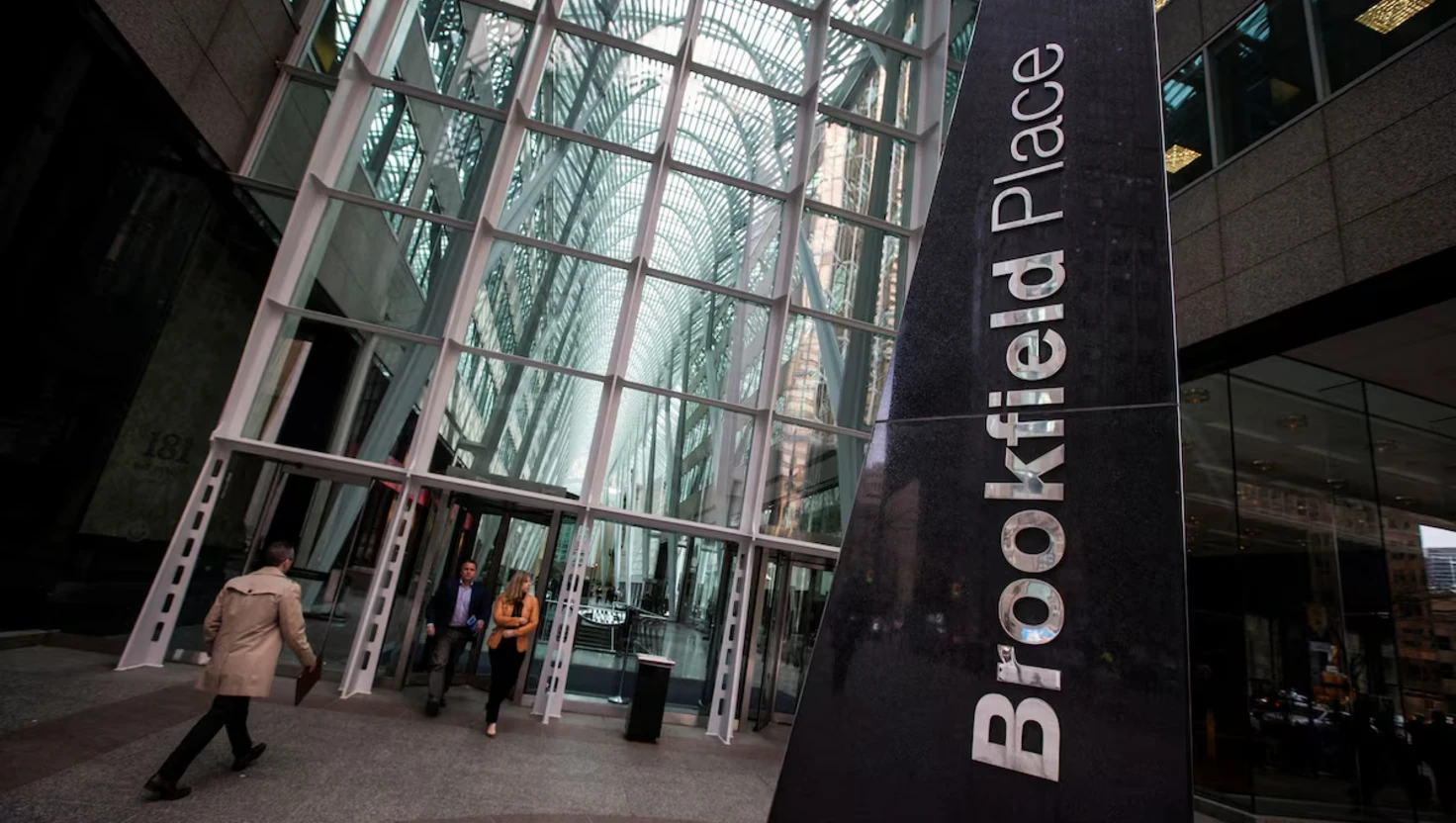North Effect: Climate change to spur higher demand for Canadian real estate

North Effect: Climate change to spur higher demand for Canadian real estate
A new report reveals climate change is fuelling long-term demand for Canadian real estate, as global migrants seek climate-resilient destinations.
Canada's Milder Climate Attracts Climate Migrants, Bolstering Housing Demand
Climate change is accelerating global migration patterns, and Canada is emerging as a key destination for climate-resilient relocation, according to a new report by Concordia University and real estate investment firm Equiton Inc. The study finds that Canada's relatively moderate climate is increasingly appealing to migrants from countries experiencing severe climate-related risks, such as extreme heat, wildfires, and flooding.
Titled The North Effect: Climate Resilience of the Canadian Real Estate Market, the report highlights how rising global temperatures are reshaping international migration and, in turn, strengthening long-term demand for Canadian housing.
Warming Temperatures Shift Migration Northward
The study finds that warmer temperatures in Canada’s northern regions could make previously inhospitable areas more attractive to new arrivals. While higher temperatures in other countries tend to deter immigration, the report indicates that a 1°C increase in average temperature in Canada is associated with a rise in immigration to affected areas. Researchers suggest this may be due to Canada’s cold climate becoming more temperate as global warming continues.
“Canada’s climate profile is proving to be a magnet for migrants fleeing worsening environmental conditions,” said Christopher Wein, Chief Executive of Equiton Developments. “To meet growing demand, we must reduce policy barriers and construction costs to address the ongoing housing crisis.”
Climate and Economics: Key Drivers of Migration
The analysis uses data from Canadian census divisions and draws on decades of economic, demographic, and climate data. It finds that the effects of climate change—especially extreme temperatures and wildfires—are strongly correlated with reduced immigration to affected areas globally.
For instance, a 10-day increase in days above 30°C is linked to a 0.5% drop in a region’s immigrant share. Similarly, a 10% expansion in wildfire-prone land results in a 2% decline in immigration. However, these trends appear to reverse in Canada’s case, where milder weather may be making certain regions more appealing.
The report also considers the situation in immigrants’ countries of origin. Using data from the Notre Dame Global Adaptation Initiative, the study reveals that migrants from countries with high climate exposure are more likely to relocate to Canada. A 10-point rise in a country’s climate exposure score corresponds to a 0.5% increase in its share of immigrants to Canada, regardless of immigration category—whether student, temporary worker, or permanent resident.
Economic conditions are similarly influential. A drop in a country’s GDP per capita significantly raises the likelihood of its citizens migrating to Canada. The study shows that a one-unit decline in log GDP per capita increases a country’s immigrant share to Canada by 0.4 to 0.9 percentage points.
Financial Risk and Investor Implications
Climate-related damage is becoming increasingly costly in Canada. According to the Insurance Bureau of Canada, annual insurable losses have risen 379% over the past decade, with 228,000 claims filed in 2024 alone—more than four times the 20-year average.
Insurers and lenders are responding. In 2024, Desjardins stopped issuing new mortgages in flood-prone areas of Quebec. Meanwhile, the Intact Centre on Climate Adaptation recorded an 8.2% decline in property values in flood-affected areas, highlighting growing financial caution in response to climate exposure.
For institutional investors, the findings suggest that Canada's real estate market presents a unique opportunity to diversify against climate risk. With a lower incidence of extreme heat and other climate hazards compared to many other countries, Canada may be viewed as a more stable environment for long-term property investment.
Real Estate Demand Linked to Climate Migration
The report builds on previous research that identified immigration as a leading driver of housing demand in Canada’s urban centres, such as Toronto, Vancouver, and Montreal. By incorporating artificial intelligence and neural networks, researchers project sustained upward pressure on rental prices, exacerbated by a persistent gap between supply and demand.
This new analysis adds a climate dimension to the picture, arguing that Canada’s appeal will likely grow as other parts of the world become less habitable due to environmental degradation.
Policy Recommendations for a Climate-Resilient Future
The report advises Canadian policymakers to support investments in climate-adaptive infrastructure and green-certified real estate projects. With housing shortages already a pressing issue, proactive measures are needed to accommodate rising migration flows driven by climate change.
It also encourages institutional investors to incorporate climate risk into portfolio strategy by geographically diversifying assets. Real estate holdings in Canada, the report argues, can serve as a hedge against the physical and financial impacts of climate change experienced elsewhere.
International organisations, including the United Nations, have warned that some parts of the world may become uninhabitable due to extreme weather events and rising temperatures. As this threat materialises, Canada’s relative climate stability and policy openness may play an increasingly vital role in global migration trends and property market dynamics.
Context: Canada’s Climate Resilience in a Warming World
Canada’s geographic location, cooler baseline temperatures, and robust infrastructure have contributed to its image as a climate-resilient nation. Compared to the United States, where wildfire exposure and extreme heat have sharply risen, Canada has experienced fewer days with extreme temperatures, though the overall warming trend remains consistent across both countries.
This climate stability not only shapes migration patterns but also helps insulate Canadian real estate markets from some of the immediate physical and economic risks seen in higher-risk regions.
With global carbon emissions continuing to rise, the long-term role of climate migration in shaping real estate markets is likely to grow. For Canada, this presents both a challenge and an opportunity—one that calls for coordinated responses from investors, urban planners, and government policymakers.
Climate change is accelerating global migration patterns, and Canada is emerging as a key destination for climate-resilient relocation, according to a new report by Concordia University and real estate investment firm Equiton Inc. The study finds that Canada's relatively moderate climate is increasingly appealing to migrants from countries experiencing severe climate-related risks, such as extreme heat, wildfires, and flooding.
Titled The North Effect: Climate Resilience of the Canadian Real Estate Market, the report highlights how rising global temperatures are reshaping international migration and, in turn, strengthening long-term demand for Canadian housing.
Warming Temperatures Shift Migration Northward
The study finds that warmer temperatures in Canada’s northern regions could make previously inhospitable areas more attractive to new arrivals. While higher temperatures in other countries tend to deter immigration, the report indicates that a 1°C increase in average temperature in Canada is associated with a rise in immigration to affected areas. Researchers suggest this may be due to Canada’s cold climate becoming more temperate as global warming continues.
“Canada’s climate profile is proving to be a magnet for migrants fleeing worsening environmental conditions,” said Christopher Wein, Chief Executive of Equiton Developments. “To meet growing demand, we must reduce policy barriers and construction costs to address the ongoing housing crisis.”
Climate and Economics: Key Drivers of Migration
The analysis uses data from Canadian census divisions and draws on decades of economic, demographic, and climate data. It finds that the effects of climate change—especially extreme temperatures and wildfires—are strongly correlated with reduced immigration to affected areas globally.
For instance, a 10-day increase in days above 30°C is linked to a 0.5% drop in a region’s immigrant share. Similarly, a 10% expansion in wildfire-prone land results in a 2% decline in immigration. However, these trends appear to reverse in Canada’s case, where milder weather may be making certain regions more appealing.
The report also considers the situation in immigrants’ countries of origin. Using data from the Notre Dame Global Adaptation Initiative, the study reveals that migrants from countries with high climate exposure are more likely to relocate to Canada. A 10-point rise in a country’s climate exposure score corresponds to a 0.5% increase in its share of immigrants to Canada, regardless of immigration category—whether student, temporary worker, or permanent resident.
Economic conditions are similarly influential. A drop in a country’s GDP per capita significantly raises the likelihood of its citizens migrating to Canada. The study shows that a one-unit decline in log GDP per capita increases a country’s immigrant share to Canada by 0.4 to 0.9 percentage points.
Financial Risk and Investor Implications
Climate-related damage is becoming increasingly costly in Canada. According to the Insurance Bureau of Canada, annual insurable losses have risen 379% over the past decade, with 228,000 claims filed in 2024 alone—more than four times the 20-year average.
Insurers and lenders are responding. In 2024, Desjardins stopped issuing new mortgages in flood-prone areas of Quebec. Meanwhile, the Intact Centre on Climate Adaptation recorded an 8.2% decline in property values in flood-affected areas, highlighting growing financial caution in response to climate exposure.
For institutional investors, the findings suggest that Canada's real estate market presents a unique opportunity to diversify against climate risk. With a lower incidence of extreme heat and other climate hazards compared to many other countries, Canada may be viewed as a more stable environment for long-term property investment.
Real Estate Demand Linked to Climate Migration
The report builds on previous research that identified immigration as a leading driver of housing demand in Canada’s urban centres, such as Toronto, Vancouver, and Montreal. By incorporating artificial intelligence and neural networks, researchers project sustained upward pressure on rental prices, exacerbated by a persistent gap between supply and demand.
This new analysis adds a climate dimension to the picture, arguing that Canada’s appeal will likely grow as other parts of the world become less habitable due to environmental degradation.
Policy Recommendations for a Climate-Resilient Future
The report advises Canadian policymakers to support investments in climate-adaptive infrastructure and green-certified real estate projects. With housing shortages already a pressing issue, proactive measures are needed to accommodate rising migration flows driven by climate change.
It also encourages institutional investors to incorporate climate risk into portfolio strategy by geographically diversifying assets. Real estate holdings in Canada, the report argues, can serve as a hedge against the physical and financial impacts of climate change experienced elsewhere.
International organisations, including the United Nations, have warned that some parts of the world may become uninhabitable due to extreme weather events and rising temperatures. As this threat materialises, Canada’s relative climate stability and policy openness may play an increasingly vital role in global migration trends and property market dynamics.
Context: Canada’s Climate Resilience in a Warming World
Canada’s geographic location, cooler baseline temperatures, and robust infrastructure have contributed to its image as a climate-resilient nation. Compared to the United States, where wildfire exposure and extreme heat have sharply risen, Canada has experienced fewer days with extreme temperatures, though the overall warming trend remains consistent across both countries.
This climate stability not only shapes migration patterns but also helps insulate Canadian real estate markets from some of the immediate physical and economic risks seen in higher-risk regions.
With global carbon emissions continuing to rise, the long-term role of climate migration in shaping real estate markets is likely to grow. For Canada, this presents both a challenge and an opportunity—one that calls for coordinated responses from investors, urban planners, and government policymakers.

B.C. Premier rebuffs developers' request for foreign real estate investment
B.C. developers urge Canadian and provincial governments to ease the foreign buyer ban, but Premier David Eby and Minister Christine Boyle reject the proposal.
| 2025-08-01

Bank of Canada holds interest rate steady in the face of tariffs
The Bank of Canada maintains its benchmark interest rate at 2.75%, citing a resilient economy amid ongoing global trade tensions and U.S. tariffs.
| 2025-07-31

Brookfield Expands Mortgage Holdings with $2.9bn First National Deal
Brookfield and Birch Hill to acquire 62% of First National Financial in $2.9bn move, deepening Brookfield’s presence in Canada’s non-bank mortgage market.
| 2025-07-30

Brookfield and Birch Hill Acquire Majority Stake in First National
Brookfield and Birch Hill to purchase 62% of First National Financial for $1.8bn, marking a major shift in Canada’s non-bank mortgage sector.
| 2025-07-30

Birch Hill and Brookfield to Acquire First National in $2.9 Billion Deal
Brookfield and Birch Hill to acquire Canadian mortgage lender First National for $2.9 billion, with founders retaining a minority stake in the company.
| 2025-07-30




